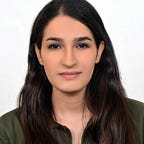‘Cooking Together Has Changed our Attitudes Towards Each Other’
Nesrin is from Syria, Sevgi is from Turkey. They have different stories and different outlooks, but they share a passion for cooking. This passion led them to WFP’s Kitchen of Hope initiative which gives cooking skills and work experience to both Syrian refugees and Turkish nationals.
ANKARA — Nesrin started cooking when she was only seven because her mother became sick. Sevgi has always watched cooking programmes on TV and bought cooking books. Both women thought about working in the catering sector but for one reason or another it didn’t happen. Now they are participating in WFP’s Kitchen of Hope (Mutfakta Umut Var) programme and their hopes look a little more realistic.
Kitchen of Hope aims to equip both vulnerable Syrian refugees and Turkish citizens with professional cooking skills and help them gain work experience. The programme includes two months of technical skills training and an additional 2 months on-the job training at a partner hotel, restaurant or café.
The programme is implemented in Turkey by the UN World Food Programme (WFP) working with the Turkish Red Crescent (TRC) and the World Academy for Local Government and Democracy (WALD).
Apart from the work-related advantages, another result noted by participants is a better understanding between Syrian refugees and Turkish nationals. “The relationship was a bit cold to begin with. We preferred to sit separately — we didn’t mingle,” Sevgi recalls.
She learned later that one Syrian participant even said that she would avoid conversation with the Turkish participants. “But by the end of the training, this same person hugged us all. I’m very happy that I took part. Cooking together has changed things. Our attitudes to each other have changed”.
Nesrin, who fled Syria for Turkey with her three children in 2017, praised the positive attitude and behaviour of her Turkish colleagues. “My relationship with the Turkish participants was good. They were humble and understanding. We all have dreams and goals, so we should respect each other. Relationships are built on respect”.
Both participants improved their cooking skills, learned different recipes and developed professionally. Sevgi, for example, has started looking at cooking from a different perspective. “I’ve always liked trying new recipes, but I never had enough courage to do so. I was encouraged by my trainer. She pushed me.”
Nesrin says she has become a more sociable person since Kitchen of Hope. “I started enjoying taking part in conferences, workshops and anything social. I am encouraging my children to do the same at school”.
Future hopes
Before taking the brave decision to leave everything behind and move to Turkey, Nesrin had owned a grocery store and had worked as a farmer. “I never thought that I might live in Turkey one day. I never even considered it. I had a really happy life in my village”.
Now life is very different. The death of her husband in 2012 left her with many new responsibilities. Nesrin wants to stay in Turkey and start a restaurant of her own where she can cook Turkish and Syrian meals. “I know that this is costly, but I hope to get there one day. I also have plans to start growing my own fruit and vegetables to use organic products in my food”.
Sevgi who also had her own grocery store for several years, is currently aiming to become a chef. “It is really hard to get by with one salary. I’ve always wanted to supplement my family’s income because I want the best education for my children and I want to be able to visit new cities”.
She explains enthusiastically how cooking helps relieve stress. “Cooking fills my heart with happiness. I enjoy preparing food for people because receiving their positive feedback motivates me”.
One of her lasting memories of the programme is when, at Eid, all the participants worked together to prepare baklava — a rich, sweet dessert pastry common to both Turkey and Syria). Everyone took some home for their family.
“Kitchen of Hope gave us the chance to come in direct contact with Syrians and therefore get to know them and understand them better. We cooked together, ate together and did everything together.”
